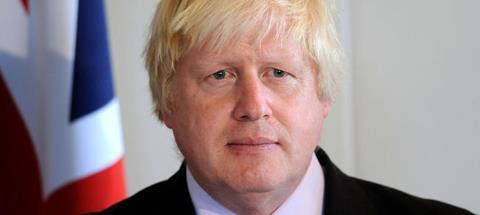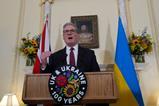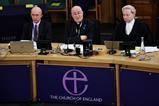The obstruction of Ukrainian refugees with officious bureaucracy in Calais and Paris is not just cruel and unpleasant, it’s also deeply unholy, says Rev George Pitcher

For a government that is supposedly populist, the current UK one is pretty hopeless at judging the public mood. From a customs border down the Irish Sea to protecting Owen Paterson from his shameless lobbying of parliament for his own vested interests; from the axing of free school meals in a pandemic to assuming that no one cares about law-breaking parties at Number 10. The Government has assumed, wrongly, that voters don’t give a toss about other people.
Its latest massive misjudgment of the British people is the shameful failure to extend a welcome and rescuing hand to refugees fleeing the horrors of the Ukraine war. While other European countries have responded to the heart-breaking plight of hundreds of thousands of Ukrainian families, Britain initially managed just 50 visas, rising pathetically this week to a measly 300.
The assumption, on the back of “getting Brexit done”, is that the British people hate foreigners, so limiting immigration under all circumstances will be politically appealing. The mistake here, as with the other issues mentioned above, is thinking that British people aren’t fundamentally decent. Or, rather, that their standards of decency accord with those of our prime minister. Boris Johnson seems metabolically ill-equipped to make a call on the right thing to do, over what is politically expedient. His problem is that most of the electorate are able to do so.
Matters of nationhood and sovereignty are strong principles for the British people. They are principles that are rooted in our Judeo-Christian heritage. That’s not to say that the British populace invests much time checking political policy against Judaic law fulfilled in the Christological covenant, but it is fair to say that there is, as Dr Rowan Williams would call it, a religious folk memory of the right and wrong ways to address nationhood and the welcome of strangers.
The people of Poland and Germany seem to be responding in a way which suggests they understand this principle, whether by an intuitive folk memory or through simple human compassion (which amount to the same thing). By contrast, Britain doesn’t seem to get it at all. The obstruction of Ukrainian refugees with officious bureaucracy in Calais and Paris is not just cruel and unpleasant, it’s also deeply unholy. Our nation isn’t ours from which to exclude those who need it, but our God’s, the fruits from which we share. And to do so generously is to share the boundless generosity of the God who gave it in the first place.
The UK’s response is a consequence of self-entitlement. It is the presumption of Johnson and home secretary Priti Patel that the British people are entitled to the nationhood that they enjoy by virtue of their own efforts, talents and good fortune.
It’s tempting to say that Johnson is just weak – in the words of Oscar Wilde: he can resist anything except temptation, but it’s worse than that. It’s about appealing to the basest of human nature in keeping what we have from those who need it most. To be better than that is to serve God ahead of our national interest. The key, of course, is to try to make those two things one and the same.





































